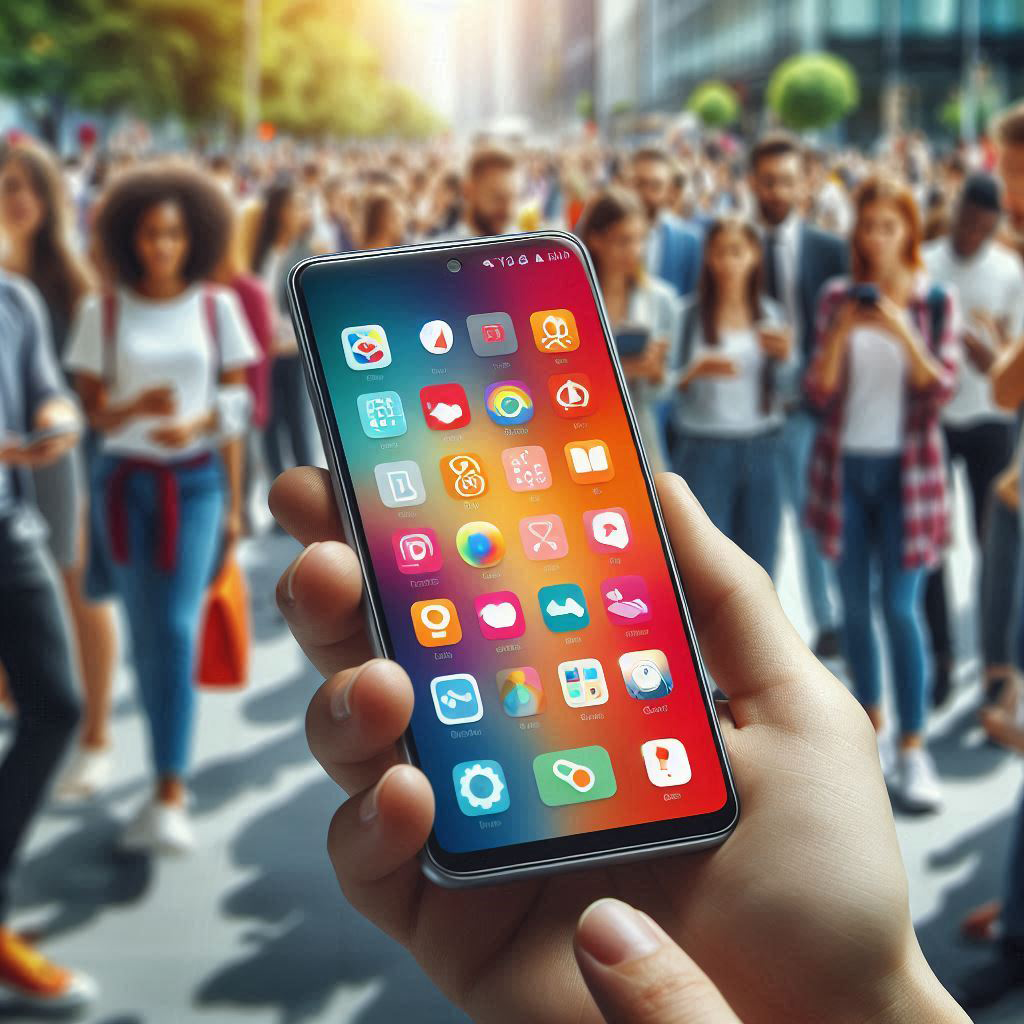In a world where technology seems to evolve faster than our ability to keep up, there is one gadget that has quietly become our constant companion, personal trainer, and health adviser all rolled into one. Yes, I’m talking about that sleek, shiny, and occasionally annoying contraption strapped to your wrist – your smartwatch. Once upon a time, it merely told you the time; now, it knows more about your life than your own mother. Let’s take a humorous deep dive into how your watch became a health guru and why it probably knows you better than you know yourself.
The Evolution of the Humble Wristwatch
Once a status symbol and a marvel of fine craftsmanship, the wristwatch has always enjoyed a place of prestige on the human wrist. Fancy analog watches made us look sophisticated, punctual, and irresistibly charming. They were often passed down through generations, cherished for their intricate designs and sentimental value. But something changed when watches got smart. They went from being silent spectators of our chaotic lives to becoming judgmental little health gurus that buzz, beep, and occasionally nag us into better habits.
The Birth of the Smartwatch
The transformation began with the advent of the smartwatch. Suddenly, our wristwatches were not just about telling time. They could count our steps, monitor our heart rate, and even track our sleep patterns. It was as if overnight, our watches had gone from being passive accessories to becoming active participants in our daily routines. And boy, did they have opinions! These technological marvels were equipped with sensors, accelerometers, and GPS systems that allowed them to gather data on our every move. They evolved to include features like notifications, reminders, and even the ability to make phone calls. It was like strapping a miniature personal assistant to your wrist.
Your Watch, The Reluctant Personal Trainer
Remember the days when you could laze around the house guilt-free? Enter the smartwatch, and those days are long gone. Now, every time you sit for too long, your watch nudges your wrist with a gentle reminder to “Move!” It’s like having a personal trainer who never sleeps (and never lets you sleep either). The smartwatch is programmed to monitor your activity levels and encourage you to stay active. Whether it's reminding you to stand up every hour or pushing you to achieve your daily step goal, it ensures that you’re constantly moving. And if you ignore its reminders, it’ll just keep nagging you until you give in.
Counting Steps: The New Obsession
One of the first features to capture our collective imagination was the step counter. Who knew counting steps could become such an obsession? Suddenly, we found ourselves pacing around the living room at 11:59 PM just to hit that magical 10,000-step mark. And let’s not forget the satisfaction of seeing that little digital trophy pop up on the screen. It’s like getting an A+ in adulting. We became obsessed with tracking our steps, comparing our daily totals with friends and family, and setting new goals to outdo ourselves. The step counter transformed our daily walks into competitive challenges, making us more conscious of our activity levels and pushing us to be more active.
The Heart Rate Monitor: A Mixed Blessing
The heart rate monitor is another game-changer. While it’s fantastic to know your resting heart rate (and how it spikes when your boss calls), it can also be a little disconcerting. For instance, you may find yourself in a calm meeting, only to glance at your watch and see your heart rate skyrocketing. Is it the coffee? The stress? Or is your watch just messing with you? The heart rate monitor provides valuable insights into your cardiovascular health, helping you understand how your heart responds to different situations. It can alert you to potential issues, such as an unusually high heart rate or irregular rhythms, prompting you to seek medical advice if necessary.
Sleep Tracking: The Ultimate Truth Teller
If you thought your watch was intrusive during the day, wait until you discover sleep tracking. Gone are the days when you could blissfully tell yourself you had a “great night’s sleep.” Now, your watch will gleefully inform you that you had three hours of light sleep, two hours of REM, and a pathetic 30 minutes of deep sleep. Thanks, watch, for the brutal honesty. Sleep tracking provides a detailed analysis of your sleep patterns, including the duration and quality of your sleep cycles. It helps you identify factors that may be affecting your sleep, such as late-night screen time or caffeine consumption, and encourages you to adopt healthier habits to improve your sleep quality.
The Bedtime Notifications
Your watch doesn’t just monitor your sleep; it actively participates in it. Bedtime notifications are a gentle (or not-so-gentle) reminder that you should be winding down. If you’re still watching TV or scrolling through your phone, your watch will chime in with a friendly “It’s time for bed!” It’s like having a strict parent who won’t let you stay up past your bedtime. These notifications help you establish a consistent sleep schedule, ensuring that you get enough rest each night. By encouraging you to stick to a regular bedtime, your watch helps you maintain a healthy sleep routine and wake up feeling refreshed and energized.
The Food Police: Calorie Counting
As if monitoring your physical activity and sleep wasn’t enough, your watch also wants to know what you’re eating. Calorie counting apps are integrated into most smartwatches, turning them into the ultimate food police. Every cookie, every slice of pizza, every spoonful of ice cream is scrutinized and logged. Your watch keeps track of your calorie intake, helping you make informed decisions about your diet. It provides insights into the nutritional value of your meals, highlights areas where you may be overindulging, and encourages you to make healthier choices.
The Guilt Trip
Nothing beats the guilt trip that comes with logging a high-calorie meal. Your watch gives you that silent, judgmental vibe, and you can almost hear it saying, “Really? Another slice of cake?” It’s like having a dietician who never takes a day off and judges you for every culinary indulgence. The guilt trip can be a powerful motivator, pushing you to rethink your eating habits and opt for healthier alternatives. While it may be annoying at times, it's also a valuable tool for maintaining a balanced diet and achieving your fitness goals.
Hydration Reminders: Because You Forget to Drink Water
One of the more recent additions to the smartwatch’s repertoire is the hydration reminder. Apparently, we’re all terrible at remembering to drink water. So, every hour or so, your watch will buzz and remind you to take a sip. It’s like having a very persistent hydration coach who takes their job way too seriously. Proper hydration is essential for maintaining overall health and well-being. Hydration reminders ensure that you stay adequately hydrated throughout the day, preventing dehydration and its associated symptoms, such as headaches and fatigue.
The Awkward Situations
Of course, these reminders can pop up at the most inconvenient times. During a meeting, in the middle of a movie, or while you’re driving. Imagine your watch buzzing and you frantically searching for your water bottle while everyone in the meeting room looks at you quizzically. Despite the occasional awkwardness, hydration reminders are a valuable tool for promoting healthy habits and ensuring that you drink enough water each day.
The Mindfulness Guru: Breathing Exercises
As if exercise, sleep, and diet weren’t enough, your watch also wants to keep your mind in check. Breathing exercises and mindfulness apps are now part of the package. Your watch will periodically tell you to take a moment to breathe deeply and relax. It’s like having a tiny Zen master strapped to your wrist. These features help you manage stress and maintain mental well-being. By encouraging you to practice mindfulness and deep breathing, your watch helps you stay calm and focused, even during hectic days.
The Irony of Stressing Over Relaxation
The irony is that these reminders can sometimes be more stressful than relaxing. There you are, in the middle of a hectic day, and your watch decides it’s the perfect time for a mindfulness session. You’re already late for a meeting, and now you’re supposed to stop and breathe? Thanks, watch. Really helpful. Despite the occasional inconvenience, mindfulness and breathing exercises are essential for reducing stress and maintaining mental health. By taking a few moments to relax and breathe deeply, you can improve your focus, productivity, and overall well-being.
Fitness Challenges: The Competitive Edge
Your watch isn’t just about keeping you healthy; it also wants you to compete. Fitness challenges and competitions with friends are a big part of the smartwatch experience. Suddenly, you find yourself in a daily step-count battle with your coworker or trying to beat your best friend’s record for most calories burned in a week. These challenges add a fun and competitive element to your fitness routine, motivating you to push yourself harder and achieve your goals.
The Dark Side of Competition
While competition can be motivating, it can also bring out your dark side. You might find yourself taking the long route to the bathroom just to add a few extra steps or jogging in place while brushing your teeth. It’s all fun and games until you realize you’ve become that person who obsessively checks their step count every hour. While it's important to stay motivated, it's also crucial to maintain a healthy balance and not let competition consume you. Remember to enjoy the journey and celebrate your progress, no matter how small.
Embrace the Health Guru
Despite the constant reminders, the guilt trips, and the occasional stress, there’s no denying that our smartwatches have revolutionized how we approach health and fitness. They’ve made us more aware of our habits, motivated us to move more, and even improved our sleep patterns. Sure, they can be a bit intrusive and annoying, but they’re also incredibly helpful.
So, the next time your watch buzzes to remind you to move, drink water, or breathe, don’t roll your eyes. Instead, embrace your tiny health guru. After all, it knows more about you than you do. And who knows? Maybe one day, you’ll even thank it for making you a healthier, happier version of yourself.











